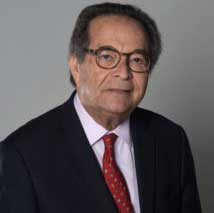The conversion Saint Paul and some others?

By: Luis Beltrán Guerra G. - 28/01/2023
Share:
The Lord waited for Saul, "the Pharisee", on the road to Damascus to change his heart and make him one of his most faithful apostles. Educated in the school of Gamaliel, he persecuted Christians "troche and mocha", liquidating them, for the sake of fidelity to the Mosaic law. Ananias laid his hands on him, ending his 3-day blindness, a consequence of his encounter with Jesus, which led "Pablito" to become "one of the greatest evangelizers in history" (The Viatican News portal).
It must be affirmed, then, that God, "the Creator of everything" turned "Saul of Tarsus" from bad to so good, that he ended up being "Saint Paul".
The pertinent concern would therefore be to ask why God does not do what Paul did with us? That is, to become “good”. Well, there are reasons. And plenty.
Let"s begin by asking Pablo not to illuminate the multiplicity of opinions that feed "terrible polarizations", unfortunately, more in the procedural, that is, how to change the government, than in relation to "the principles of transparency, dedication to public service, impartiality, equality and correctness in the treatment of citizens, responsibility and respect for fundamental rights and public liberties (Pan-Hispanic Dictionary)”. That is, to "a good government."
The scenario, each day more worrisome, has not stopped identifying the causes and typifying responsibilities. In the first row, "the politicians", for whose job, with very few exceptions, more than knowledge is required, among other skills, "daring", are located first in line. They tend to carry, rightly or not, with “learned ignorance”, a close cousin of “the Socratic tradition “I only know that I know nothing”, even reaching the appreciation that not everything can be qualified as “political discourse” ( Silvia Gutiérrez, Political Discourse and Argumentation, UNAM). know not only what their country should be like, but also who should govern it and how.
It must be kept in mind, at the same time, that the tendency to discipline methodologies in order to mitigate the negative consequences of what happens, has found its most suitable cooperator in "digitization" rather than help, the food of communication and information , a phenomenon described as “infocracy” by the philosopher Byung-Chul Han, for whom the current crisis of democracy is generated by “the structural change of the public sphere in the digital world”. He considers the media as a Church: the "like" is the amen. Sharing is communion. Consumption is redemption. Consumption and identity come together. The identity itself becomes "a commodity." A phenomenon, without a doubt, complex for the common.
It is also read that democratic institutions do not guarantee that duly elected governments observe constitutional norms. Similarly, that those who fall into "autocratization", strange as it may seem, have sustained popular support. Likewise, the optimistic vision that citizens are an effective threat to undemocratic governments is questioned, it is difficult for the people to unite, not them. Three aspects, whose reality is not virtual.
Who could ask Saint Paul, taking advantage of the fact that the Church commemorates his "conversion", if it would be possible that "we also convert", leaving aside so much dissent, at least in Venezuela, for being one of the most affected countries in the last decades, both politically and economically and socially. "The minipartización", cousin sister very close to "polarization" and a government attacked from all areas, for some, even in its internal conformation. The journalist Inés Santaeulalia, who has just interviewed the former presidential candidate Henrique Capriles, could lead us in a prayer hand in hand with Pablo and Santa Eulalia in allusion to his last name, with the same courage before the Diocesan governor claiming that the laws that ordered worship idols and not the true God, should be repealed. The petition ¿The seriousness of Venezuelans?, whose absence seems to reflect Capriles: “Many people have not understood what has happened in the Venezuelan opposition in recent weeks, although the truth is that nobody understands well what has happened in the opposition for years, always caught up in accusations and cross criticism. Formally, an unquestionable truth.
Much more if we admit that the ex-candidate has not referred to polarization as a difficulty in getting out of government. The conjunction that is ideally demanded must be accompanied by “a good government”. In both missions, it"s like it didn"t go very well for us.
An appreciation that does not stop being heard, with regard to the disasters that today typify Latin American countries, is referred to the absence of "a commander". A political leader capable of mobilizing national and international factors with efficiency for the sake of concord, pacification and a just society.
The burning of each other does not seem the route. They become a flag so that those who hold power stick to it the most, a kind of guarantee so that they don"t get roasted.
Comments welcome.
@LuisBGuerra
«The opinions published herein are the sole responsibility of its author».